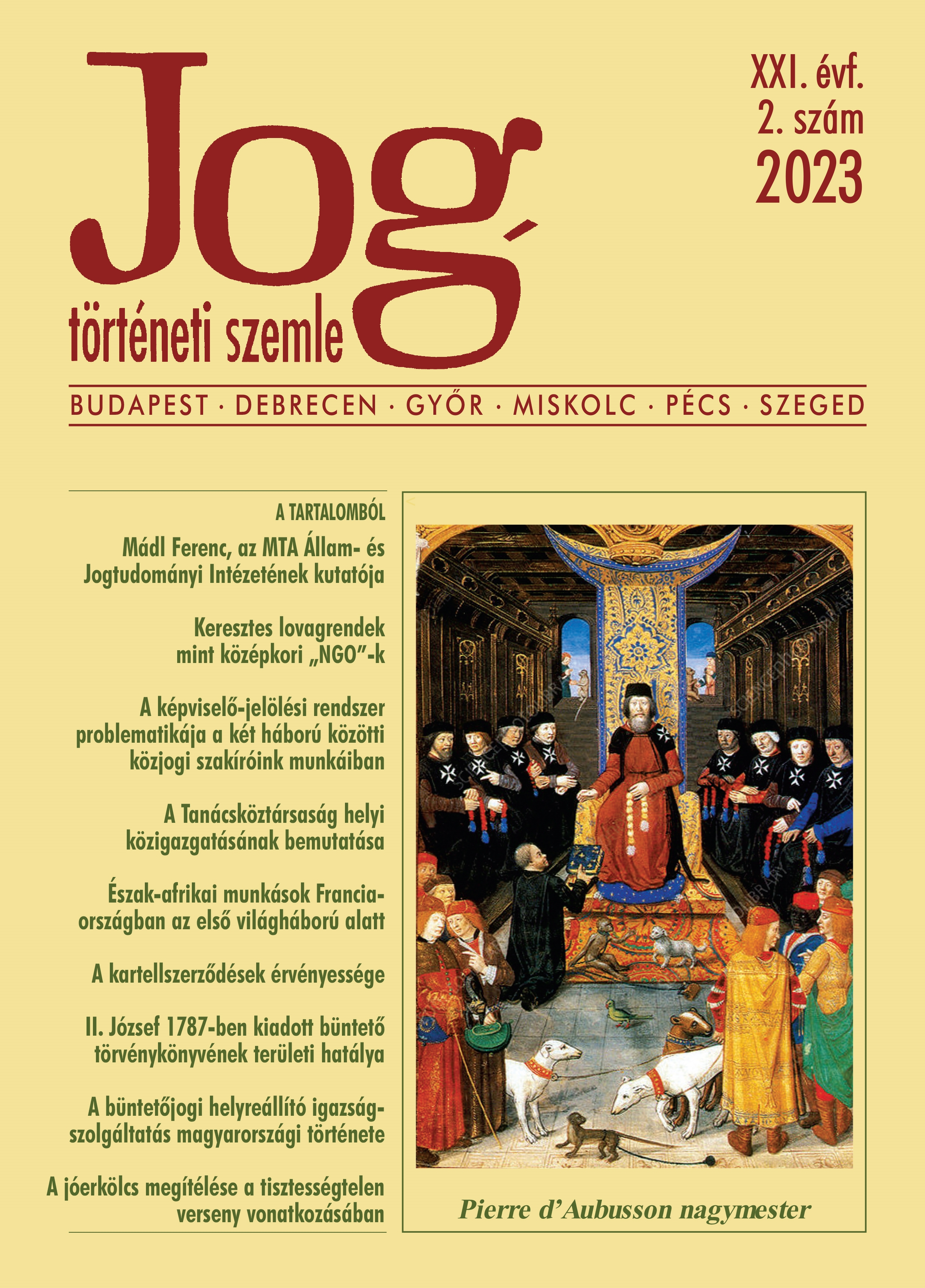A bemutatási kötelezettség mint a kartellszerzôdések érvényességi kelléke az 1931:XX. tc. hatálybalépését követôen
DOI:
https://doi.org/10.55051/JTSZ2023-2p53Absztrakt
Akartelljog magyar szabályozása alapvetően közjogi jellegű volt az 1931. évi XX. tc.-ben, tekintettel a megváltozott gazdasági és politikai viszonyokra. Ez az első világháborút követően kialakuló megváltozott gazdasági szemléletnek volt az egyik jelentős következménye, ugyanis a két világháború között fokozatosan bontakoztak ki a gazdaságba való állami beavatkozás egyes eszközei. Az állam elsődleges célja az volt, hogy a kartellfelügyeleten keresztül a közérdek érvényesülését biztosítsa. Ez viszont nem jelentette azt, hogy magánjogi elemek nem találhatók a kartelltörvényben. A törvény előírta, hogy a kartellmegállapodásokat be kell mutatni az illetékes miniszternek. A bemutatáson felül szükséges alaki kellék volt még az írásbeliség. E két fontos alaki kellék a megállapodások érvényességének alapfeltétele volt, ami egyben az ügyleti érvényességet is jelentette.






